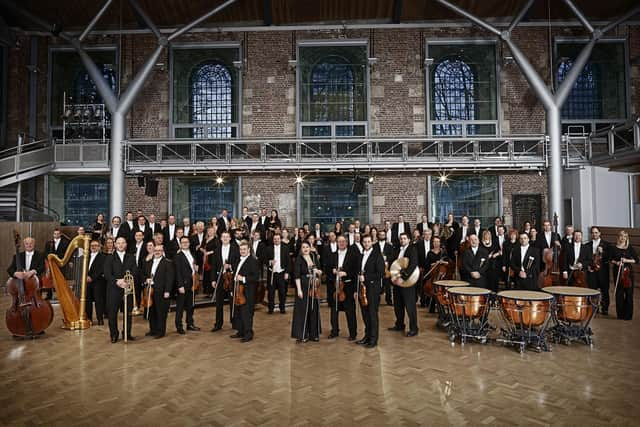Edinburgh International Festival music reviews: London Symphony Orchestra: Rachmaninoff & Shostakovich | Yeol Eum Son
London Symphony Orchestra: Rachmaninoff & Shostakovich *****
Usher Hall
In writing his Symphony No 11, ‘The Year 1905’, Shostakovich was not only composing a colossus of a piece to commemorate the Russian Revolution of that year, but music about events which were deeply personal to him and his family.
Advertisement
Hide AdAdvertisement
Hide AdWringing that emotion out of its four continuous movements over the course of an hour, the London Symphony Orchestra – and their Principal Guest Conductor, Gianandrea Noseda – built up a sense of foreboding suspense and tension at the Usher Hall on Monday evening, starting with Palace Square and its tragic massacre.
Making use of evocative revolutionary songs, the music’s troubled menace was punctuated by percussion in the form of snatches of snare drum or resonating cymbal clashes. The tall figure of Noseda stooped to coax plaintive melodies from strings and wind, and the most remarkably uniform pizzicatos from cellos and doubles basses.
For all that the Shostakovich was exciting and edge of the seat stuff, Rachmaninoff’s Piano Concerto No 2, was dreamy, reflective, rich and sensual. With Russian superstar pianist Mikhail Pletnev as soloist, this was familiar music heard through a new aural kaleidoscope of brooding colour.
Expansive yet understated, the seamlessly integrated combination of Pletnev, Noseda and the full-bodied LSO sound was effectively entrancing. Carol Main


Yeol Eum Son ****
Queen’s Hall
If the ultimate destination of Yeol Eum Son’s solo recital was Beethoven’s monumental Hammerklavier Sonata, the route towards it was no less daunting, though usefully less intense. The journey travelled back in time, not strictly chronologically, but featuring in the first half work by composers whose future indebtedness to Beethoven ranged from the directly personal to a more distant adherence.
The South Korean pianist opened with a side to Bizet we don’t often see, his coruscating Variations Chromatiques, rising from squirming, protean darkness to the dizzy bright lights of successive variations. Czerny’s 'La Ricordanza’ Variations offered a more settling contrast, paving the way for the beguiling charm of Liszt’s similarly-titled Transcendental Study No 9, and ending the first half with Alkan’s Variations on a Theme of Steibelt. To this point, Son’s effervescent musicality had us gripped.
As for the Beethoven, Son addressed its bombastic rhetoric, belligerent unpredictability and ferocious virtuosity with electrifying bravado. In answer to the heated discourse of the opening movement, the scherzo danced. But if her slow movement oozed purity and serenity she fell short in fully embracing its otherworldly magic. What a finale, though, its ballistic fugue beaten into submission, the final gravitational chord reverberating in utter defiance. Ken Walton